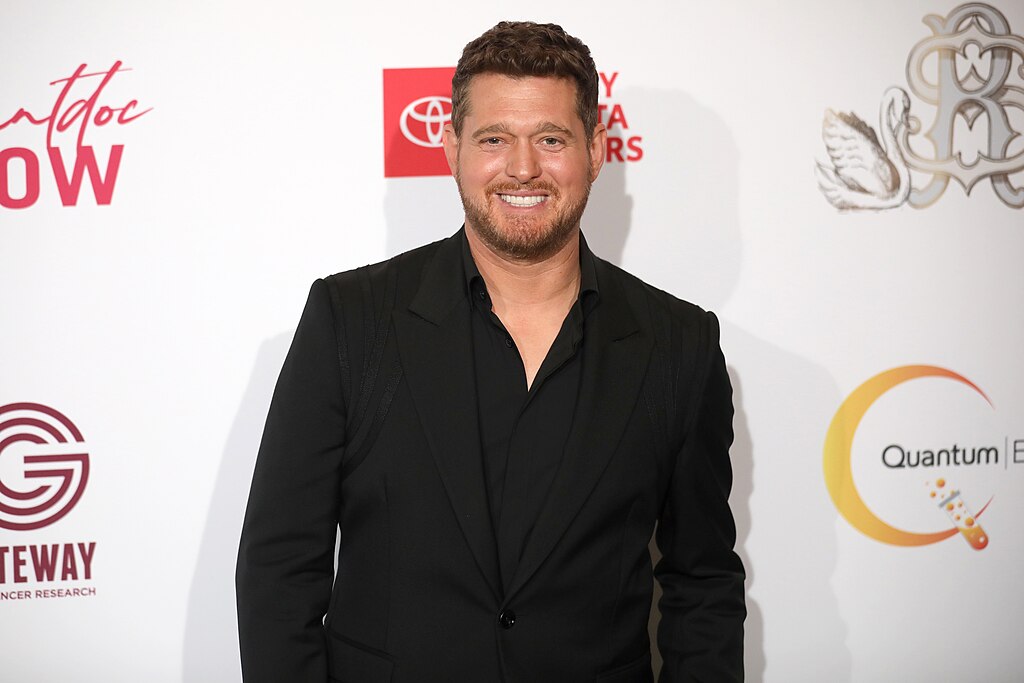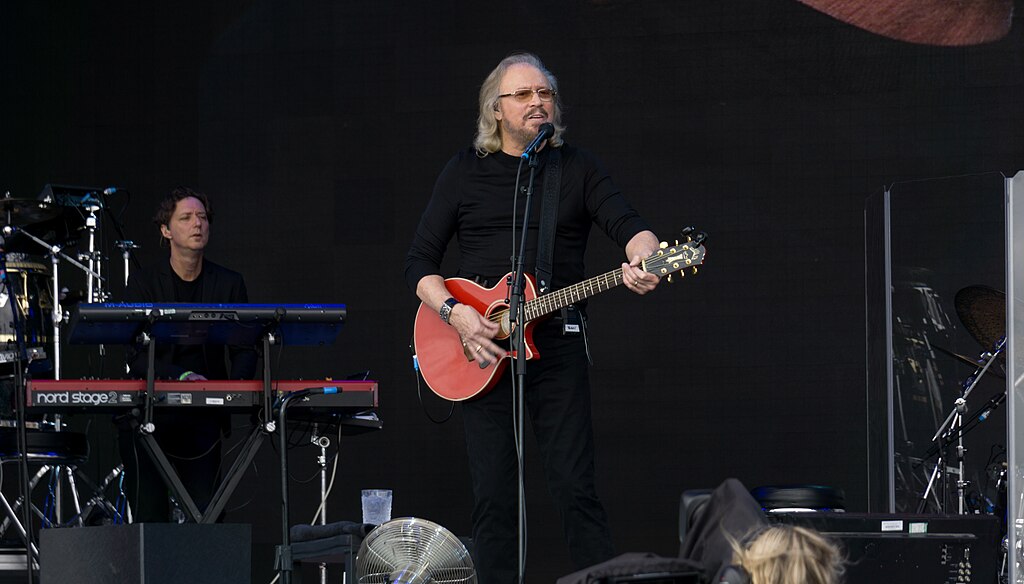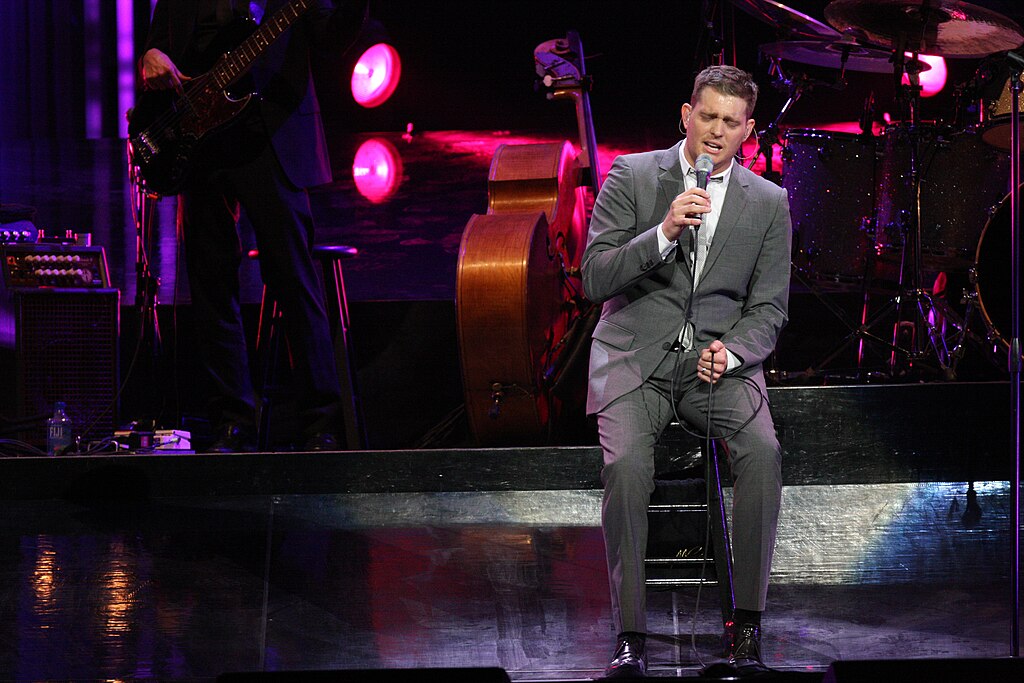Even internationally acclaimed stars have mentors. For Canadian singer Michael Bublé, that mentor is Barry Gibb, songwriting legend and founding member of the Bee Gees. At the 46th Kennedy Center Honors, Bublé paid homage to Gibb in the most meaningful way possible: with a performance of the very song that helped launch his career, How Can You Mend A Broken Heart. The result was not just a tribute, it was a moment of gratitude, history, and deeply personal resonance.
A Night Honoring Icons
The Kennedy Center Honors, held annually at the John F. Kennedy Center for the Performing Arts in Washington, D.C., is one of America’s most esteemed celebrations of lifetime artistic achievement. The 2023 honorees, Barry Gibb, Queen Latifah, Dionne Warwick, Billy Crystal, and Renée Fleming, represent a wide range of cultural influence, from music and comedy to opera and hip hop.
For Barry Gibb, the recognition was particularly poignant. As the last surviving member of the Bee Gees, his influence on music spans more than four decades. Alongside his brothers Robin and Maurice, Gibb helped shape pop and disco music throughout the 1970s and 1980s, earning nine No. 1 singles on the Billboard Hot 100 and more than 220 million records sold worldwide. He also tied The Beatles’ record for six consecutive U.S. No. 1 hits and won five Grammy Awards for the Saturday Night Fever soundtrack alone.
The Origins of a Musical Bond
Before he was a chart-topping vocalist, Michael Bublé was a young artist trying to break through. One song changed everything: How Can You Mend A Broken Heart.
“Before people knew who I was, I needed to get my name out there,” Bublé, now 49, told the Kennedy Center audience. “And there was only one song that could get the job done. It was How Can You Mend A Broken Heart.”
Early in his career, Bublé recorded a demo of the song, hoping to channel its emotional gravity. By chance, or as he put it, “as fortune would have it”, that demo made its way to Barry Gibb. What followed was more than a passing endorsement. Gibb offered kind words, then something more extraordinary: he sang backup vocals on Bublé’s 2003 recording of the track.
That version became a single on Bublé’s debut album and reached No. 22 on Billboard’s Adult Contemporary chart. The gesture marked the beginning of a long and respectful relationship between the two artists, one built on admiration, humility, and shared love for classic songwriting.
A Full-Circle Tribute
Two decades later, Bublé stood on stage once again with How Can You Mend A Broken Heart. But this time, he wasn’t promoting a debut. He was honoring the man who believed in him when the world had not yet heard his name.
With lush arrangements and soft harmonies accompanying him, Bublé’s voice flowed effortlessly through the song’s tender melody. He leaned into the microphone stand in his signature relaxed style, allowing the poignancy of the moment to take center stage. The emotional weight of the lyrics, penned by Barry and Robin Gibb in 1971, was palpable.
In the audience, Gibb quietly sang along. His expression was one of pride, tinged with the kind of emotion only decades of artistry, and loss, can summon. Having lost both of his younger brothers, Maurice in 2003 and Robin in 2012, Gibb has continued on with a solo career, carrying the Bee Gees’ legacy with grace. Seeing one of his protégés offer such a moving tribute clearly touched him.
As Bublé finished the final note, he blew a kiss toward Gibb and mouthed a simple but powerful “thank you.” It was the closing gesture to a performance that transcended entertainment.

A Standout Among Stars
Though the Kennedy Center Honors featured numerous performances, including tributes to Gibb by Broadway stars Ben Platt and Ariana DeBose, it was Bublé’s stripped-down, deeply personal performance that many considered the night’s emotional centerpiece.
Platt delivered a high-energy version of Nights on Broadway, while DeBose helmed a medley of Bee Gees hits. Both were well-received. Yet Bublé’s connection to the material, and to Gibb himself, brought a sincerity that lingered long after the curtain closed.
Audiences responded swiftly and passionately. Social media lit up with praise, calling the performance “breathtaking,” “pure,” and “a reminder of what music is all about.” One fan wrote, “This soulful rendition is so heartfelt… thank you Michael for showing the love to Barry that we all feel.”
The Enduring Legacy of Barry Gibb
As the only living Bee Gee, Barry Gibb represents both a legacy and a lineage. His falsetto vocals, songwriting mastery, and cultural imprint remain unmatched. Beyond their iconic disco era hits like Stayin’ Alive and Jive Talkin’, the Bee Gees wrote tender ballads like To Love Somebody and Words, which continue to resonate across generations.
Even after the passing of his brothers, Gibb carried on, not just as a solo performer, but as a steward of the Bee Gees’ musical history. His recognition at the Kennedy Center is not merely a personal honor but a cultural acknowledgment of an era-defining sound.

Mentorship, Memory, and Musical Continuity
What made Bublé’s performance more than a tribute was its quiet acknowledgment of mentorship. He didn’t just sing a song, he told a story about how one artist’s kindness changed the course of his life. For viewers, especially older adults who’ve followed both artists for decades, the moment underscored the enduring power of legacy.
It’s easy to forget that behind the polished stages and sold-out tours are small, life-changing exchanges. A demo tape. A few encouraging words. A willingness to sing backup on a newcomer’s track. These are the acts that shape artists, and remind us that greatness isn’t just measured in awards, but in generosity.
A Moment to Remember
In a world that often favors flash over feeling, Bublé’s tribute offered something more lasting: sincerity. It wasn’t about reinventing a classic, but about honoring it, just as he honored the artist who first believed in him.
For creative professionals and music lovers alike, it was a poignant reminder of how artistic influence flows forward. And for Barry Gibb, it was a well-earned moment of reflection, joy, and gratitude.
Featured image from Eva Rinaldi, CC BY-SA 2.0, via Wikimedia Commons

